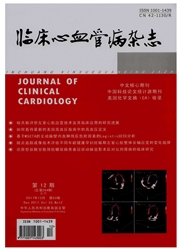

 中文摘要:
中文摘要:
目的:探讨姜黄素对人Kv1.3通道的药理作用。方法:通过建立稳定表达在HEK-293细胞上的人Kv1.3通道细胞系,运用全细胞膜片钳技术研究姜黄素对Kv1.3通道的作用,并通过在体动物实验观察药物对兔体表心电图的影响(心率和QTc间期),初步验证药物对心脏的安全性。结果:姜黄素可以时间依赖性和浓度依赖性地阻断Kv1.3通道,半数抑制浓度IC50为4.21μmol/L,而且通道激活曲线向右移动(正电压方向),说明药物对通道的激活状态(开放)产生阻断作用。动物实验发现,在较低浓度时(5或10μmol/L)姜黄素对兔心率和QTc间期没有产生任何影响,在高浓度时(50μmol/L)只是轻微地降低心率和延长QTc间期,无严重心律失常发生。结论:姜黄素可以有效阻断人Kv1.3通道,并且在一定范围内无致心律失常作用,具有相对安全性。本研究为姜黄素治疗自身免疫性疾病的药理机制提供了更多理论基础。
 英文摘要:
英文摘要:
Objective:To investigate the pharmacological effect of curcumin on human Kv1.3channel.Method:The effect of curcumin on human Kv1.3(hKv1.3)channels stably expressed in HEK-293 cells and ECG alterations(heart rate and QTc interval)of rabbits were investigated.Human Kv1.3channels were stably expressed in HEK-293 cells,and the resulting currents were recorded using the whole-cell patch clamp technique.ECG traces were obtained before and after intravenous administration of curcumin in anesthetized rabbits.Heart rate and QTc interval were analyzed.Result:Curcumin exhibited a blockade of hKv1.3channels in a time-dependent and concentration-dependent manner with an IC50 of 4.21μmol/L.Moreover,the activation curve was shifted to a more positive potential by curcumin,which was consistent with an open-channel blockade.In rabbits,curcumin did not exert significant effect on heart rate or QTc interval at lower concentrations(5or 10μmol/L).Conclusion:Curcumin as a hKv1.3blocker is potent and relatively safe at tested concentrations.Therefore,this study provides another theoretical foundation in pharmacological mechanism of curcumin used for the treatment of autoimmune diseases.
 同期刊论文项目
同期刊论文项目
 同项目期刊论文
同项目期刊论文
 期刊信息
期刊信息
